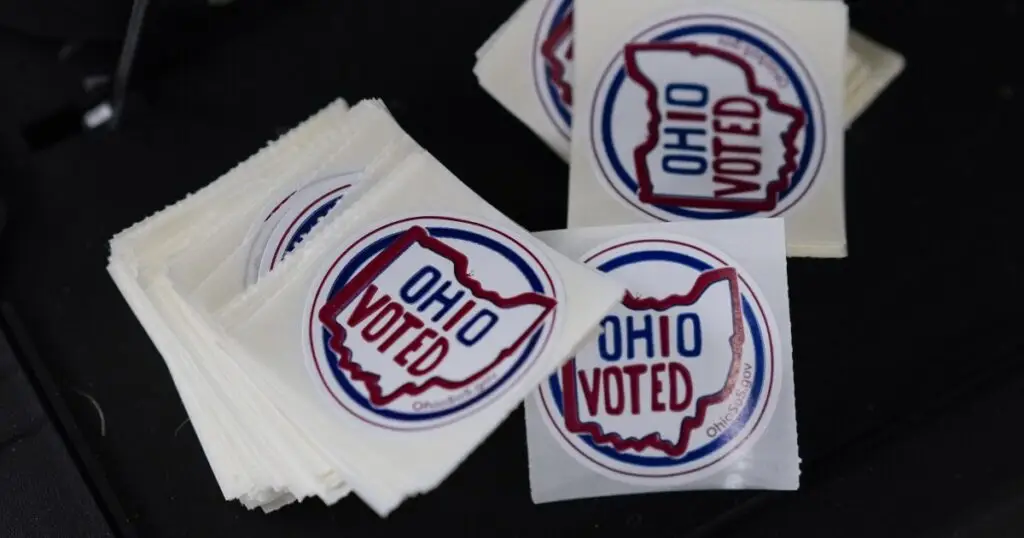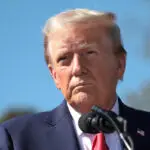When it comes to the climate and environment in Northeast Ohio, the candidates in Ohio’s 11th Congressional District have a different outlook. Democratic candidate Shontel Brown is emphasizing federal and local investments in clean energy through the Inflation Reduction Act, while Republican challenger and Cleveland Heights Mayor Alan Rapoport is stressing the need for a free-market approach to climate solutions.
Ideastream Public Media’s Zaria Johnson has met with both separately since coming into office to discuss their plans for climate action and environmental policy.
What would you mention in your past work that expresses your attitude towards environmental issues?
Brown: We can talk about the historic legislation we passed, including the Deflation Reduction Act, the largest investment in the climate crisis in our country’s history. I am proud of it because it has created over 300,000 new clean energy jobs. We expect to reduce greenhouse gas emissions by 40% in 2023.
The good news is that it’s a 10-year bill and only about 15% of it has been spent right now, so I think that’s an indication of where I stand and what we’ve been able to do together. intends to do in the future.
Report: While I was mayor of Cleveland Heights, we built a lot of public buildings. We built a new town hall. We built two fire stations to replace three old fire stations that were built in the 20s, and we also did a lot of work to redevelop Cain Park. We also did a lot of work with water lines, sewer lines, streets – we did a lot of construction work. One of our goals in doing this was to create a more efficient system while also using newer technologies, especially the town hall.
We had to look at what we could do to make it more energy efficient as well as user friendly. So I think that’s the commitment I’ve made to try to do things right during this time. Something I think is sustainable. It’s also my interest to be very practical, but also to be very proactive and try to create a good environment.
Climate change is having more pronounced effects that are felt locally in Ohio – everything from extreme temperature swings to more frequent extreme weather. What role do you see for yourself and the federal government in mitigating the impacts of climate change on people and communities? How would you strengthen your position in Congress?
Report: I don’t think it’s a good idea to shoot a lot of gunk into the air. It certainly won’t help us in the short term. And me. I can’t help us for a long time. Therefore, I think that it should be looked at at the federal level.
It’s an example of something that bothers me a lot. Our government, in its infinite wisdom, is blocking the transfer of liquefied natural gas to other countries. I think it was a very bad idea because it resulted in other countries becoming more dependent on Russian oil, which is much dirtier than ours.
It also prevented a shift from dependence on other sources, such as coal, to cleaner liquefied natural gas, and put some of our foreign alliances at risk because it took countries that were already quite dependent on energy supplies and turned them around. on people.
Like suppliers that we probably don’t want to promote as suppliers. So I think the federal government can be very involved in trying to change the general direction, not just here, but elsewhere.
Brown: The good news is that we had significant local impacts. One of the things I’ll mention is, just a few months ago, I think it was August, we delivered $129 million to Cuyahoga County to build brownfield solar.
I would also like to point out that in May we gave tax credits to local schools to install solar panels, including our neighbor in Warrensville. [and] Maple Heights. Let me think here. We just, I visited the Cleveland-Cliffs plant yesterday that received $19 million for clean steel production.
MetroHealth is another prime example where we were able to provide a $17 million climate justice grant to provide free devices to more than 1,200 low-income families with asthma. Hence, it is an attempt to replace outdated gas stoves with new electric stoves.
And finally, I would point to the $156 million implementation for solar energy throughout the Midwest through the Cleveland-based group Opportunities Partners. So we’re celebrating the historic, tremendous legislation and investment made at the local level and at the local level in partnership with the federal government.
Are you a supporter of clean energy production in the country? Does the federal government have a role in supporting it, and you?
Brown: Absolutely. Yes. Yes. I think you can tell from the work we’ve done locally with the historic legislation around the Inflation Reduction Act that we recognize the importance of protecting our planet and that’s the only thing we have and nothing else. more important. If we don’t have a planet, then everything else is empty, right?
Report: I believe there will be gradual development in different areas and I think it’s kind of the above approaches to see which of them work. I think we’re still learning about forms of energy like solar and wind, and I don’t think we’re ready to move into those areas en masse yet.
I hope that as we all learn more about the pros and cons of different forms of energy, we will learn not to rely on any particular source and eventually find our way to some sources that provide efficiency, but also a better environment.
One area I’m a little surprised isn’t being pursued more aggressively is called carbon offset credits. I guess I favor a free market approach to almost everything, but it’s about giving people incentives to do what they want to do.
I think tax credits that basically reward certain behaviors are not a bad thing, and that’s something the federal government can do. What I don’t like is that the government picks winners and losers. I remember the collapse of Solyndra, where the federal government decided to invest a lot of money.
Now, if it’s a free market and someone invested their money and chose to take a risk, that’s fine, but I don’t like using taxpayers’ money to play dice with the energy market. But I think carbon offset credits are one area where I think the federal government could be more proactive.
What specific steps will you take to support stewardship in and along Lake Erie? Do you support a multi-state partnership with the other US Great Lakes states and Canada? Do you think there should be changes?
Report: One of the great advantages of living in Northern Ohio is Lake Erie, not only for recreational purposes, not only as a water source, but much can be done to make it a better body of water. I think the interstate compact with the other Great Lakes states is very important and should be reviewed often to make sure we are all on the same page as stewards of the lakes.
I think it also involves very specific discussions with our neighbors, the Canadians, about how to manage the lake. For example, we have common problems with invasive species and how to deal with this problem. I sometimes joke that one of the reasons I support the Second Amendment is because I wish I had a gun to stand on the border of Lake Erie and shoo those Texans away when they come to take our water away from us.
It was a joke, but I think we have a special resource for our area and over time other people will take note of it.
Brown: The Great Lakes are very important to me. When I talk to elected officials like community leaders and business people, I realize how important the lake is to our future. It is a great asset, but we must protect it.
What the collective is most concerned about is warmer temperatures and pollution, which we know has historically led to more algal blooms, which are devastating to lakes.
So what I’ll mention about the lake is the bipartisan infrastructure bill that includes $1 billion for Great Lakes restoration. And I have to give a shout out to Congresswoman Kaptur, who I like to call the queen of the Great Lakes, for her tenacity and determination to make sure this investment is made.
But I think it’s also important to get to know our neighbors in Buffalo, because it stretches from Buffalo to Minnesota. So it’s a big deal. I am proud to be a member of the Great Lakes Task Force. And I want to make sure that we continue to reauthorize this Great Lakes Restoration Initiative and increase funding for cleanup and coastal protection.
What else would you like voters to know about you?
Brown: I want constituents to know that I am proud to represent them and serve their needs. I am not going to Congress with a personal agenda. I’m going to Congress with an agenda that puts them at the forefront and truly addresses issues that will bring immediate and long-term benefits to my constituents.
So, I hope that what I’ve been able to do and the results that I’ve achieved are an example of that, and I hope that they will continue to trust me to represent them in the future.
Rapaport: I have a different philosophy than the other candidates. I consider myself a pragmatist and consider myself a moderate. It may be an endangered species in the political world today.
I’ve always been, as I suggested, more interested in getting results than pontificating, and I’ve been more interested in talking clichés about how the world should be in my opinion. I believe that we all have very little time on this earth to get things done, and I hope to use the remaining time in the best way possible.
In the 80s, I left political office because my family was developing. I had a daughter and I wanted to send her to college and I wanted to earn money so I could pay for college. Well, it’s over. He is on his own and my wife says I need a hobby.
So I went back into the public sphere, this time to be involved on a much larger scale, trying to do my part to make the world a better place for others. Because I think that making the world a better place for others makes it better for me.


